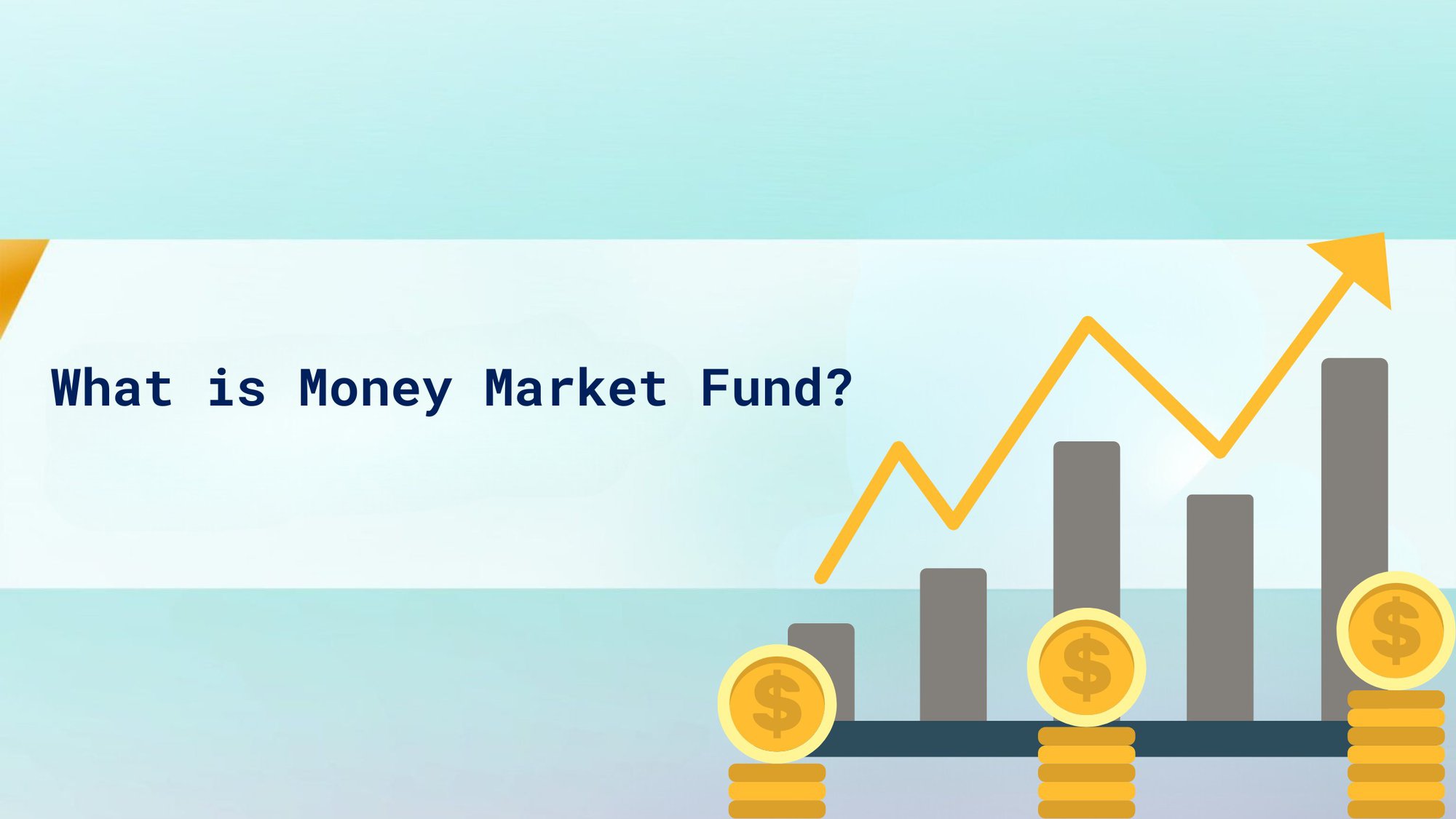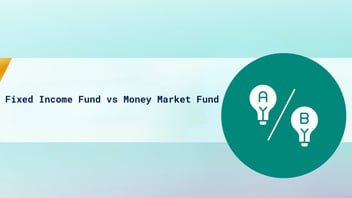
What is Money Market Fund?
Author Taiwo Temitope-Adesope
A Money market fund is a type of investment vehicle that is gaining popularity in Nigeria. They are a low-risk option for investors looking to make returns without taking on too much risk. Essentially, money market funds invest in short-term, high-quality securities. This includes Treasury Bills, Commercial Papers, Bankers Acceptances, and Certificates of Deposit issued by rated Nigerian banks.
a Money market fund aims is to provide investors with a stable return while maintaining a high level of liquidity. This makes them a great option for investors who want to park their money in a relatively safe investment while still being able to access their money quickly if they need it. Money market funds are also a good option for beginner investors who are just delving into the world of investing.
In Nigeria, there are several money market funds available to investors. Each fund has its own unique feature. It's important for investors to do their research and choose a fund that aligns with their goals and risk tolerance.
Understanding Money Market Funds
Definition and Purpose
Money market funds are a type of mutual fund that invests in short-term debt securities such as treasury bills, commercial paper, and bonds. These funds are designed to provide investors with a low-risk, low-return investment option that offers a higher yield than traditional savings accounts. Money market funds are regulated by the Securities and Exchange Commission (SEC) and are required to invest only in securities with high credit ratings.
The purpose of money market funds is to provide investors with a safe and liquid investment option that offers a higher yield than traditional savings accounts. These funds are designed to provide stability and security to investors who are looking to preserve their capital while earning a reasonable return.
Types of Money Market Instruments
Money market funds invest in a variety of short-term debt instruments, including treasury bills, commercial paper, and bonds. Treasury bills are short-term government securities that are issued by the Central Bank of Nigeria on behalf of the federal government. Commercial paper is a type of short-term debt instrument that is issued by corporations to finance their short-term cash needs. Bonds are long-term debt securities that are issued by corporations or governments to finance their long-term capital needs.
Role in Portfolio Diversification
Money market funds play an important role in portfolio diversification by providing investors with a low-risk, low-return investment option that can help to balance out the riskier investments in their portfolio. These funds are designed to provide stability and security to investors who are looking to preserve their capital while earning a reasonable return.
Investors can use money market funds to diversify their portfolio and reduce their overall risk exposure. By investing in a variety of short-term debt securities, money market funds can help to reduce the risk of a portfolio by providing a stable and secure investment option that is not subject to the same level of market volatility as other types of investments.
In summary, money market funds are a low-risk, low-return investment option that provides investors with stability and security while earning a reasonable return. These funds invest in short-term debt securities such as treasury bills, commercial paper, and bonds, and play an important role in portfolio diversification by providing investors with a safe and liquid investment option that can help to balance out the riskier investments in their portfolio.
Investing in Nigerian Money Market Funds
Money market funds are a type of mutual fund that invests in short-term, high-quality, low-risk debt securities. These funds are an excellent option for investors who want to earn competitive returns while preserving their capital and maintaining flexibility.
Eligibility and How to Invest
To invest in Nigerian money market funds, investors must meet certain eligibility criteria. Typically, investors must be at least 18 years old and have a valid form of identification. They must also have a bank account in Nigeria.
Investors can invest in money market funds through fund managers such as Stanbic IBTC Money Market Fund, FBN Money Market Fund, and United Capital Money Market Fund. To invest, investors must complete the necessary forms and provide the required documentation. The minimum investment amount varies by fund but is typically between N5,000 and N10,000.
Understanding Returns and Yields
Money market funds offer competitive returns that are typically higher than those of savings accounts. These returns are generated through interest income from the underlying securities in the fund's portfolio. The yield of a money market fund is the return an investor can expect to earn over a certain period. This is usually one year.
Investors should understand that money market funds are not guaranteed to provide positive returns. The returns and yields of these funds are subject to market fluctuations and changes in interest rates. Investors should also be aware that the returns of these funds are subject to management fees and other expenses.
Risk Management Strategies
Money market funds are considered low-risk investments because they invest in high-quality, low-risk debt securities. However, investors should still be aware of the risks associated with these funds. One way to manage risk is to diversify investments across multiple money market funds or other types of investments.
Investors should also consider their investment objectives when investing in money market funds. If an investor's primary objective is capital preservation, then a money market fund may be a suitable investment. However, if an investor is looking for higher returns, then other types of investments may be more appropriate.
In summary, Nigerian money market funds are an excellent option for investors who want to earn competitive returns while preserving their capital. To invest, investors must meet certain eligibility criteria. They can invest through fund managers such as Stanbic IBTC Money Market Fund, FBN Money Market Fund, and United Capital Money Market Fund. Investors should understand the returns and yields of these funds and consider their investment objectives when investing. By following these strategies, investors can manage risk and achieve their investment goals.
Looking to invest in a Money Market fund, and you don’t know where to start? Start by comparing on nairaCompare!
With nairaCompare, you can:
- Compare Money Market funds side-by-side: Find the best rates, returns, and maturities to match your needs.
- Filter and sort based on your preferences: You can filter based on your investment amount and risk level.
- Apply directly for your chosen fund: Skip the hassle and save valuable time.
Don't settle for the first fund you find. Compare and invest smarter with nairaCompare!
Regulatory Framework and Compliance
Securities and Exchange Commission of Nigeria
The Securities and Exchange Commission of Nigeria (SEC) is the regulatory body responsible for the registration and regulation of money market funds in Nigeria. The SEC has established guidelines and rules to ensure that money market funds operate transparently and fairly. These guidelines cover issues such as investment objectives, investment strategies, risk management, and disclosure requirements.
Money market funds in Nigeria are required to comply with the guidelines and rules set by the SEC. Failure to comply with these guidelines can result in penalties and sanctions. The SEC has the power to revoke the registration of a money market fund. This is if it is found to be in violation of the guidelines.
Compliance and Fund Management
Compliance is a critical aspect of money market fund management in Nigeria. Fund managers are required to comply with the regulations and guidelines set by the SEC. Compliance involves ensuring that the fund operates within the investment objectives and strategies set out in the prospectus.
Fund managers must also ensure that the fund complies with the investment restrictions set out in the guidelines. These restrictions include limits on the types of securities that can be invested in and the duration of the investments.
In addition to compliance, fund managers are responsible for managing the risk associated with the fund's investments. This involves monitoring the creditworthiness of the issuers of the securities held by the fund and ensuring that the fund is diversified across different issuers and sectors.
Overall, the regulatory framework and compliance requirements for money market funds in Nigeria are designed to ensure that investors are protected and that funds operate in a transparent and fair manner. Fund managers and other market participants must comply with these requirements to ensure the stability and integrity of the Nigerian financial system.
Economic Indicators and Market Dynamics
Impact of Inflation and Interest Rates
Inflation rate and interest rate are two key economic indicators that have a significant impact on the money market fund in Nigeria. The inflation rate is the rate at which the general level of prices for goods and services is rising, while the interest rate is the amount charged by a lender to a borrower for the use of money.
In Nigeria, the inflation rate has been on the rise in recent years. This has affected the purchasing power of the naira, the country's currency. Ultimately, this has led to a decrease in the returns on money market funds due to the decrease in the value of the naira. Interest rates have also been on the decline, which has made it difficult for money market funds to generate high yields.
Market Trends and Investor Sentiment
The money market fund in Nigeria is influenced by market trends and investor sentiment. The National Bureau of Statistics releases reports on the performance of the economy, which affects the investor's confidence in the market. If the reports show a positive trend, investors are more likely to invest in money market funds.
Additionally, investor sentiment is influenced by the assets under management of money market funds and the currency diversification of the fund's portfolio. If the assets under management are high, investors are more likely to invest in the fund. Similarly, if the fund's portfolio is diversified across different currencies, it reduces the risk of currency fluctuations. This attracts more investors.
In summary, economic indicators and market dynamics have a significant impact on the money market fund in Nigeria. The inflation rate and interest rate affect the returns on the fund. On the other hand, market trends and investor sentiment influence the fund's assets under management and currency diversification.
Frequently Asked Questions
How do money market funds operate in the Nigerian financial landscape?
Money market funds are a type of mutual fund that invests in low-risk, short-term debt securities. They are designed to provide investors with a safe and liquid investment option that offers higher returns than savings accounts.
In Nigeria, money market funds are regulated by the Securities and Exchange Commission (SEC). They are managed by licensed fund managers. Investors can buy and sell units of money market funds through their brokerage accounts or directly from the fund managers.
What are the top-performing money market funds in Nigeria for the year 2023?
It is important to note that past performance is not a guarantee of future returns. However, based on the performance of money market funds in 2023, some of the top-performing funds in Nigeria include ARM Money Market Fund, Stanbic IBTC Money Market Fund, and FBN Money Market Fund.
What are the typical interest rates offered by money market funds in Nigeria?
The interest rates offered by money market funds in Nigeria are usually higher than those offered by savings accounts. The rates are determined by the prevailing market conditions. This includes the monetary policy of the Central Bank of Nigeria (CBN) and the demand for short-term debt securities.
In general, the interest rates offered by money market funds in Nigeria range from 3% to 10% per annum. This, however, depends on the fund's investment strategy and the prevailing market conditions.
What are the advantages of investing in a money market fund for Nigerian investors?
Investing in a money market fund in Nigeria has several advantages. Firstly, money market funds offer higher returns than savings accounts while maintaining a low level of risk. Secondly, money market funds are highly liquid, which means that investors can easily buy and sell units of the fund without incurring significant transaction costs.
Thirdly, money market funds are professionally managed by licensed fund managers who have the expertise to invest in a diversified portfolio of short-term debt securities. This reduces the risk of default and ensures that the fund's returns are optimized.
Lastly, money market funds in Nigeria are regulated by the SEC, which provides investors with a level of protection and transparency.
Conclusion
In conclusion, Money Market Funds are a type of mutual fund that invests in short-term, low-risk debt securities. They are considered to be a safe investment option for investors who are looking to park their money in a low-risk, high-liquidity investment vehicle.
Money Market Funds in Nigeria are gaining popularity among investors due to their low risk and high returns. Investors looking to invest in Money Market Funds in Nigeria have a variety of options to choose from. The top-performing Money Market Funds in Nigeria include the United Capital Money Market Fund, FBN Money Market Fund, and ARM Money Market Fund.
Investors should carefully consider their investment goals and risk tolerance before investing in Money Market Funds in Nigeria. While Money Market Funds are considered to be low-risk investments, they are not completely risk-free. Investors should also consider the fees and expenses associated with investing in Money Market Funds, as these can eat into their returns.
Overall, Money Market Funds in Nigeria offer investors a safe and convenient way to invest their money in short-term, low-risk debt securities. With a variety of options to choose from, investors can find a Money Market Fund that meets their investment goals and risk tolerance.
Want more content like this?
About Author

Taiwo Temitope-Adesope
Taiwo is a passionate storyteller and strategist dedicated to empowering women and crafting compelling narratives. A First-Class graduate in Mass Communication from Covenant University, she specializes in writing, public relations, and digital marketing. As a Content Manager at Suretree, she drove a 50% increase in web traffic through SEO and boosted website engagement by 60% in just four months. Her leadership experience includes serving as Public Relations Officer for the Covenant University Student Council and contributing to impactful volunteer initiatives. With expertise in strategic thinking and business acumen, Taiwo continues to create stories that inspire confidence and imagination.









